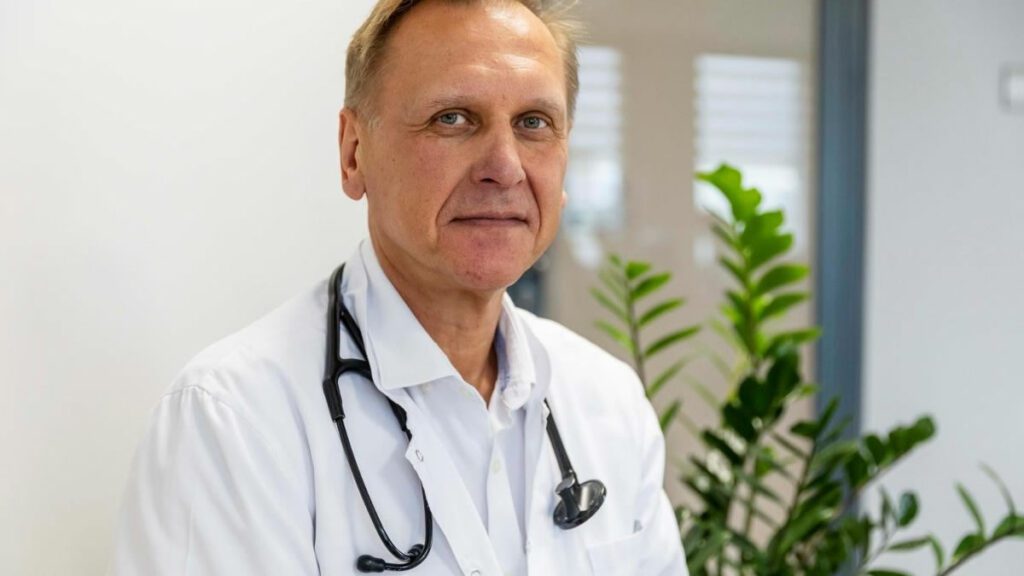In an illuminating interview, Prof. Robert M. Mróz, head of the II Clinic of Lung Diseases, Lung Cancer, and Internal Diseases at the University Clinical Hospital in Białystok, sheds light on the profound impact of smoking on human health and life expectancy. As a leading expert in the field, Prof. Mróz offers valuable insights into the dangers of tobacco use and the most effective approaches to quitting.
The Staggering Health Consequences of Smoking
Prof. Mróz emphasizes the far-reaching and devastating effects of smoking on the human body. Cigarettes contain over 7,000 chemical substances, including more than 70 known carcinogens, which can lead to a wide range of serious diseases. Beyond lung cancer, which affects 23,000 people in Poland each year, smoking is linked to cancers of nearly every organ, from the larynx and trachea to the stomach, prostate, kidney, rectum, and colon.
Moreover, smoking contributes to the development of chronic obstructive pulmonary disease (COPD), asthma, and chronic bronchitis. Prof. Mróz estimates that over 10% of adult Poles over the age of 30 suffer from COPD, amounting to at least 2 million individuals. The impact of smoking extends beyond respiratory diseases, as it also exacerbates cardiovascular conditions such as atherosclerosis and hypertension, increasing the risk of stroke and heart attack.
The Paradox of Smoking Prevalence
Despite the well-known health risks associated with smoking, Prof. Mróz expresses his bewilderment at the persistent popularity of tobacco use. He cites estimates suggesting that each cigarette smoked reduces life expectancy by 11 minutes, underscoring the profound cumulative impact on the lifespan of an average smoker.
E-Cigarettes and Heated Tobacco Products: A Closer Look
Prof. Mróz delves into the differences between e-cigarettes and heated tobacco products, highlighting the regulatory discrepancies between the two. While e-cigarettes do not require registration and lack full disclosure of their ingredients, heated tobacco products are subject to the same market restrictions and oversight as traditional cigarettes.
The lack of regulation surrounding e-cigarettes poses significant risks, as evidenced by the tragic deaths of young individuals in the United States due to "popcorn lung" caused by the use of vitamin E acetate in e-liquids. Prof. Mróz strongly cautions against the use of any tobacco product, particularly among young people.
The Harm Reduction Approach and the Path to Quitting
Prof. Mróz advocates for a harm reduction approach in helping smokers quit. While the ultimate goal is complete cessation, he recognizes the challenges many individuals face in achieving this. Heated tobacco products, which eliminate the harmful smoke associated with traditional cigarettes, can serve as a transitional step in the journey towards quitting.
By separating the physical addiction to nicotine from the psychological dependence on the smoking ritual, heated tobacco products allow smokers to gradually overcome their addiction in stages. Prof. Mróz emphasizes that while withdrawal symptoms may persist for two to three weeks, the long-term health benefits of quitting far outweigh the temporary discomfort.
The Crucial Role of Healthcare Professionals
Prof. Mróz stresses the vital role healthcare professionals play in supporting patients in their efforts to quit smoking. He strongly condemns any instances where doctors might suggest that continuing to smoke is better for a patient's health, emphasizing the importance of assessing a patient's readiness to quit and providing appropriate assistance.
While acknowledging that certain exceptional life circumstances may temporarily hinder a patient's ability to quit, Prof. Mróz underscores the responsibility of healthcare professionals to consistently encourage and support smoking cessation efforts. He emphasizes the collaborative nature of the journey, with both the patient and the healthcare provider working together to achieve success.
A Growing Awareness and Commitment to Quitting
Prof. Mróz concludes on a positive note, observing that an increasing number of individuals are recognizing the significance of quitting smoking for their health. While many may only make this decision upon learning of a smoking-related illness, he remains committed to helping patients overcome the challenges of addiction and empowering them to lead healthier, smoke-free lives.
As a society, it is crucial to continue raising awareness about the devastating impact of smoking on human health and to provide comprehensive support and resources to those seeking to quit. Through the tireless efforts of healthcare professionals like Prof. Mróz and the growing commitment of individuals to prioritize their well-being, we can work towards a future where the burden of smoking-related diseases is significantly reduced, and more people enjoy the benefits of a tobacco-free life.

Vape Industry Content Creator | Product Reviewer | Harm Reduction Advocate
Daniel Brooks is a vape industry content creator with a strong focus on product reviews, device performance, and consumer education. With extensive hands-on experience using disposable vapes, pod systems, and e-liquids, Daniel provides practical, unbiased insights for adult consumers.








